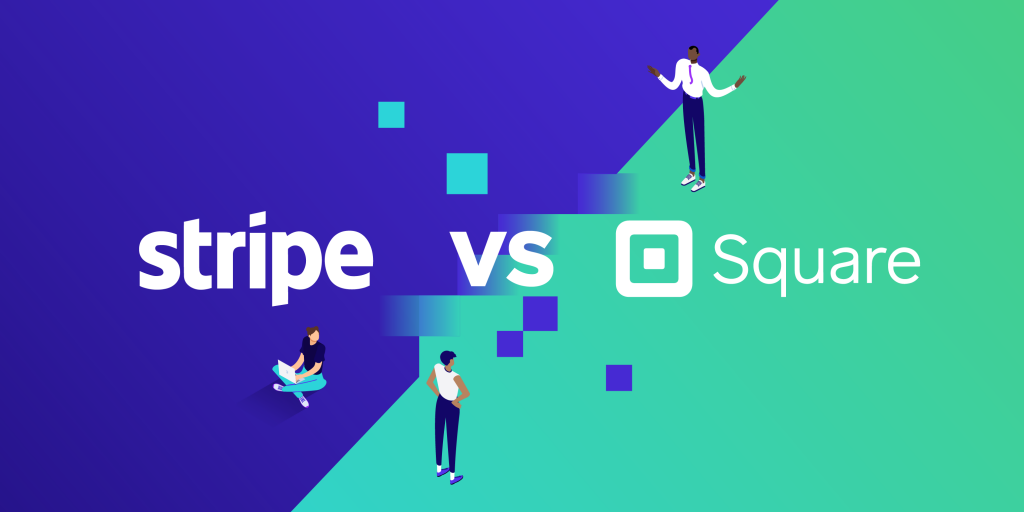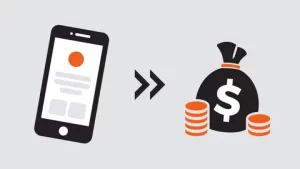Stripe vs Square: Which One is Better?

Consumers expect to have options when they pay. While online commerce demands a cashless option, younger people frequently approach in-person vendors without paper currency. If a business wants to succeed in the modern economy, it must process card payments easily and securely. Digital payment processors like Stripe and Square Processors allow small vendors to accept a variety of payments. Choosing the right payment processor for a business will involve considering factors like location, client base and typical payment methods.
Table of Contents
All You Need to Know About Digital Payment Processors
Consumers both love and hate digital payments. On the one hand, they enjoy the convenience of paying for products online or picking up dinner with the swipe of a card. On the other hand, they fear the security risks associated with digital payments. If cybercriminals intercept their financial information, it can lead to damaged credit and hours spent trying to remedy the situation.
The best digital payment processors increase the flexibility of digital payments while minimizing security risks. These processing services act as a third party standing between the vendor and the customer.
For a fee, the payment processor takes on the security risks by encrypting all transactions. The vendor never sees the sensitive payment information of the customer. Instead, the processing company moves funds safely from the customer’s preferred means of payment to the store.
Payment processors make their profits in one of two ways. Some companies charge a monthly access fee. This model benefits larger businesses that make many transactions. Processors that work with smaller organizations often charge a fee per transaction.
Stripe vs Square
Stripe and Square are two of the most popular contactless credit card machine & digital payment processors in the current market. Both platforms offer flexibility and security to their users. They both allow customers to pay with major credit cards like Mastercard, American Express and Visa. However, there are some important differences. While Square offers POS tools for small, in-person businesses, Stripe thrives as a purely online payment solution.
About Square
The stated goal for Square is to “Make Commerce Easy.” Square is not just an online payment gateway or processor. One of its benefits is providing a way for small businesses to accept in-person card payments without a wired card reader. This feature makes it possible for craft vendors, food trucks and other small merchants to have an on-site POS. The Square platform operates on a per-transaction basis. For in-person businesses, the company charges 2.75% per swipe or tap.
Square can also work with online sales. The company recently acquired the Weebly website platform. Now, e-commerce websites created on Weebly will automatically work with the payment processor. The current online charge is 2.9% plus $0.30 per sale.
Meet Stripe
The choice to use Stripe or Square may come down to the sales venue. Stripe is a payment processor that offers flexibility for online and mobile sales. With Stripe, an e-commerce site can accept credit and debit card payments and direct payments from a customer’s bank account. As an international payment solution, it can process over 130 types of national currencies.
Customers do not need to set up an account with a merchant. Instead, Stripe uses online forms to send transaction information to its secure API. This model makes it ideal for organizations that take donations or want to provide an expedited checkout experience for customers.
Stripe was born as a tool for web developers. For those with some coding skills, Stripe wins the Stripe vs Square debate for e-commerce sites. With just a few lines of JavaScript, a developer can connect a website to the payment gateway. The platform allows developers to create custom forms for payment submission. By only seeking the information necessary for a successful payment, it streamlines the sales process. This simplicity leads to fewer abandoned carts and incomplete transactions.
Thousands of companies of all sizes use Stripe for their payment processing needs. The popularity of the service has led to several resources that make it accessible to people with low coding abilities. Content management systems and e-commerce platforms like WordPress, Drupal and Magento have plug-ins available that quickly connect a website to the Stripe API.
As a company specializing in e-commerce, easy integration is part of Stripe’s power. It works with shopping cart tools such as XCart and Easy Digital Downloads. Stripe will work in tandem with platforms like Shopify and Squarespace.
Like Square, Stripe uses a per-transaction model for payment, charging 2.9% plus $.30 per successful charge. A helpful feature of Stripe is that the platform only charges vendors for successful transactions. There are no additional fees for failed transactions or refunds.
Square vs Stripe: Comparing Features
When comparing Square vs Stripe, there are several similar features. The Stripe vs Square fees for online transactions are essentially the same. They both have excellent reputations for keeping payment information secure.
If a merchant needs a payment solution that supports in-person sales, Square is an appropriate choice. Working with this processor offers merchants a POS option that uses their current technology rather than creating a need to invest in new hardware. A tablet or smartphone and Square’s card reader are everything necessary to get started.
However, when an e-commerce shop is looking for a powerful web-based or mobile payment solution, Stripe is the better choice. This payment processor was designed with a global market in mind and continues to add new currencies, cryptocurrencies and emerging payment methods. Its easy integration with accounting and marketing solutions helps expand the functionality of e-commerce websites. Especially when working with an experienced web development team, Stripe can offer merchants a powerful business tool while providing customers a simple, flexible payment process.
Whatever your option may be, Stripe or Square our team at Chetu is ready to help you integrate your preferred payment solution as well as guide you to understand how each platform works.








